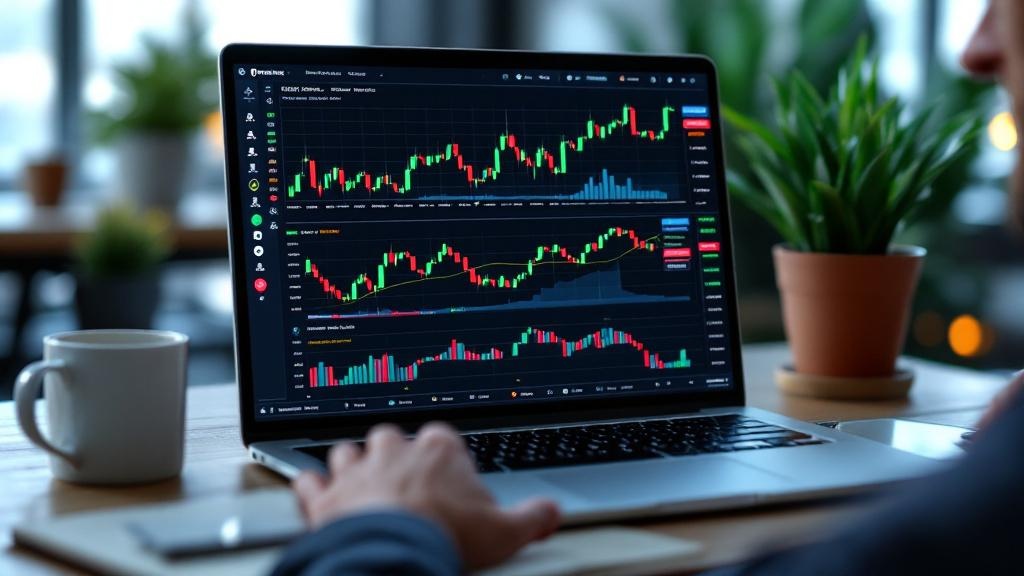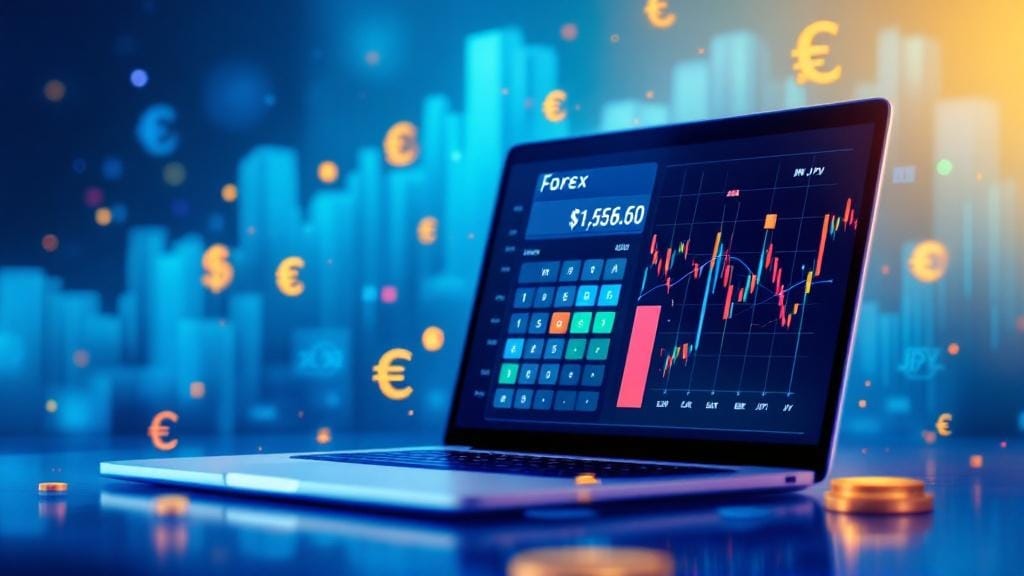Forex education is essential for anyone interested in learning how to trade currencies and succeed in the foreign exchange (Forex) market. Whether you are just starting out or looking to enhance your trading strategies, the right knowledge and tools are crucial to becoming a successful Forex trader. In this comprehensive guide, we will walk you through various aspects of Forex education, including trading strategies, tips, tools, and online resources to help you succeed in this exciting and dynamic market.
What is Forex Education?
Forex education refers to the process of acquiring knowledge, skills, and strategies that enable an individual to understand and navigate the Forex market effectively. It involves learning the basics of Forex trading, understanding market dynamics, and mastering advanced trading strategies. Forex education can be obtained through a variety of sources, including books, online courses, webinars, tutorials, and hands-on practice via demo accounts.
Whether you are interested in trading for personal gain or professionally, a solid foundation in Forex education is essential for your success.
The Importance of Forex Education
Forex education is crucial because it helps traders avoid common pitfalls and make informed decisions. By learning the ins and outs of the market, traders can:
-
Understand the Forex market: Learn about currency pairs, exchange rates, and how global economic factors influence Forex trading.
-
Master Forex trading strategies: Develop effective trading plans based on risk tolerance, market analysis, and technical indicators.
-
Minimize risk: Apply strategies like risk-to-reward ratio, stop-loss orders, and proper money management.
-
Gain confidence: Understand the mechanics of trading so that you can make decisions with greater certainty.
-
Maximize profits: Learn how to recognize opportunities and act swiftly in the Forex market to take advantage of profitable trades.
Key Components of Forex Education
1. Forex Trading Basics
If you’re just starting out, it’s important to grasp the fundamentals. Here are some basic concepts you’ll need to understand:
-
Currency Pairs: The most basic element in Forex is the currency pair. Forex trading involves buying one currency while simultaneously selling another. Common currency pairs include EUR/USD, GBP/USD, and USD/JPY.
-
Pip: The smallest unit of price movement in a currency pair. For example, if EUR/USD moves from 1.2000 to 1.2005, it has moved by 5 pips.
-
Leverage: Leverage allows you to control a large position with a relatively small amount of capital. However, it can amplify both profits and losses, so it’s important to use leverage cautiously.
-
Spread: The difference between the bid price (what you can sell for) and the ask price (what you can buy for).
-
Lot Size: The volume of currency being traded. A standard lot is 100,000 units of currency, but mini lots (10,000 units) and micro-lots (1,000 units) are also common.
2. Learning Forex Trading Strategies
Once you understand the basics, it’s time to dive into Forex trading strategies. Here are some common ones:
-
Scalping: This involves making quick, small trades to take advantage of tiny price movements.
-
Day Trading: Day traders open and close positions within the same trading day to capture small intraday price movements.
-
Swing Trading: Swing traders hold positions for several days or weeks to capitalize on medium-term price moves.
-
Position Trading: This is a long-term strategy where traders hold positions for weeks, months, or even years based on fundamental analysis.
Advanced Forex Strategies
As you gain experience, you’ll want to explore more advanced strategies such as:
-
Price Action Trading: This strategy focuses on analyzing price movements and patterns to predict future price direction.
-
Technical Analysis: Involves studying historical price data and using indicators like moving averages, RSI, and MACD to forecast price movements.
-
Fundamental Analysis: This strategy focuses on understanding the economic factors that influence currency values, such as interest rates, GDP, and inflation.
-
Risk-to-Reward Ratio: A critical concept in Forex trading, which helps traders balance the potential profit of a trade with its associated risk.
Forex Trading Tools and Platforms
1. Forex Trading Platforms
To trade Forex, you’ll need a platform that allows you to execute trades. Some of the best-known platforms include:
-
MetaTrader 4 (MT4): The most popular trading platform due to its user-friendly interface and powerful features like automated trading.
-
MetaTrader 5 (MT5): An upgraded version of MT4 that supports more timeframes and order types.
-
cTrader: Another platform that offers advanced charting tools and a customizable interface.
2. Forex Brokers
Choosing the right broker is essential for a smooth and profitable trading experience. Look for brokers with:
-
Low spreads: Narrow spreads minimize the cost of each trade.
-
Regulation: Choose brokers that are regulated by authorities like the FCA, SEC, or ASIC to ensure safety and trustworthiness.
-
Demo Accounts: Most brokers offer demo accounts, which allow you to practice trading without risking real money.
3. Forex Learning Platforms
For those looking to expand their Forex knowledge, several online learning platforms offer comprehensive courses:
-
Udemy: Offers courses for beginners and advanced traders on topics like technical analysis, trading strategies, and Forex basics.
-
BabyPips: Known for its free educational resources, BabyPips offers easy-to-follow tutorials, courses, and a vibrant community for learners.
-
Forex Academy: A platform providing free courses for new and experienced traders alike.
4. Forex Demo Accounts
Demo accounts allow you to practice trading with virtual money. This is crucial for beginners to gain confidence and learn the mechanics of Forex trading without risking real funds.
5. Forex Trading Tools
There are several tools that can make your trading more efficient:
-
Economic Calendar: Keeps track of important events that might affect currency prices, such as interest rate announcements and economic reports.
-
Charting Software: Tools like TradingView and MetaTrader offer in-depth charting features to help analyze price trends and patterns.
-
Forex Robots: Automated trading systems that use algorithms to place trades on your behalf based on pre-set criteria.
Best Forex Education Websites
There are several trusted Forex education websites where you can get started on your trading journey:
-
Investopedia: Provides a wealth of information on Forex trading, from beginner tips to advanced strategies.
-
TradingAcademy: Offers a comprehensive curriculum on Forex trading, with courses designed by professional traders.
-
FXStreet: A popular website for Forex news, analysis, and educational resources.
Forex Certification Programs
Forex certification programs help you prove your expertise in the Forex market. These programs provide in-depth knowledge about trading and can help you become a professional Forex trader. Some well-known programs include:
-
Forex Trading Certification by the International Academy of Trading: A program designed to teach traders about risk management, technical analysis, and trading psychology.
-
CFTe Certification: A certification program for traders interested in mastering technical analysis.
FAQs About Forex Education
1. What are the best Forex trading courses for beginners?
For beginners, platforms like BabyPips and Udemy offer comprehensive, user-friendly courses on Forex trading basics. They cover everything from understanding currency pairs to mastering basic trading strategies.
2. Can I learn Forex trading for free?
Yes, many resources like BabyPips, Investopedia, and ForexFactory provide free educational content on Forex trading. You can start with free tutorials, videos, and articles before deciding if you want to invest in paid courses.
3. What is the best Forex broker for beginners?
For beginners, brokers like IG, OANDA, and TD Ameritrade are excellent options due to their user-friendly platforms, educational resources, and strong customer support.
4. What is risk-to-reward ratio in Forex trading?
The risk-to-reward ratio measures the potential profit of a trade against the risk involved. For example, if you risk 50 pips to gain 150 pips, your risk-to-reward ratio is 1:3, which is favorable for most traders.
5. How do I develop an advanced Forex trading strategy?
Advanced strategies involve mastering technical and fundamental analysis. You can learn to combine price action, indicators, and risk management principles to create a strategy that fits your trading style and goals.
6. What are the best Forex demo accounts for practice?
Most brokers, including MetaTrader 4 (MT4) and MetaTrader 5 (MT5), offer demo accounts. These are excellent for practicing strategies without risking real money.
7. What tools should I use for technical analysis in Forex?
Some of the best tools for technical analysis include charting software like TradingView, MT4, and MT5, which offer various indicators and drawing tools to help analyze price movements.








Comments (0)